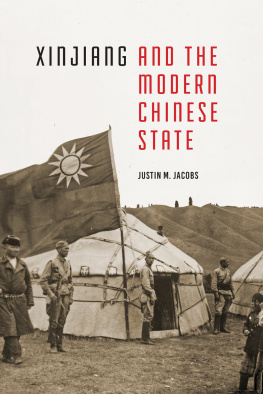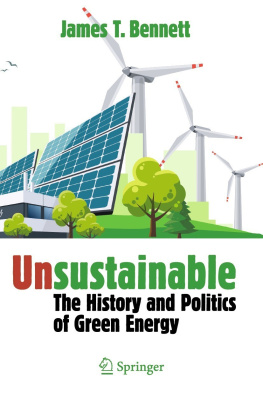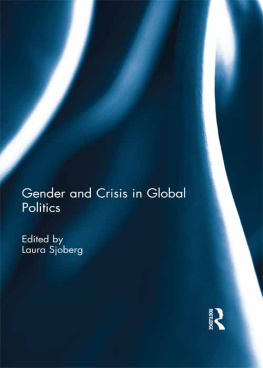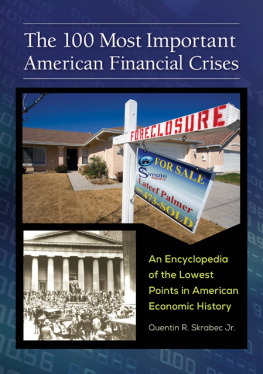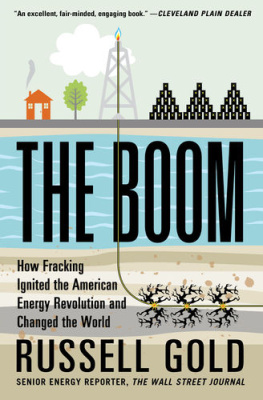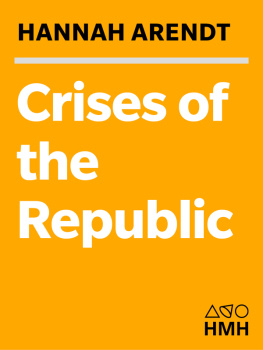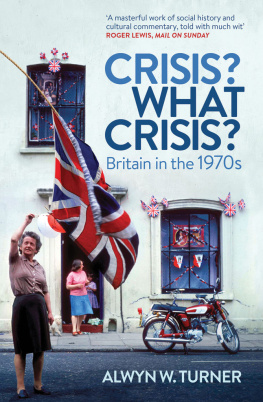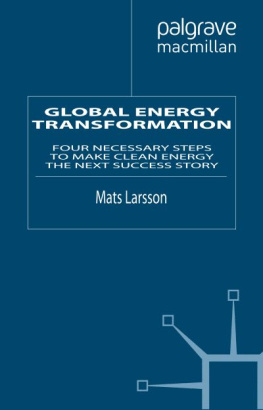Jacobs - Panic at the Pump: The Energy Crisis and the Transformation of American Politics in the 1970s
Here you can read online Jacobs - Panic at the Pump: The Energy Crisis and the Transformation of American Politics in the 1970s full text of the book (entire story) in english for free. Download pdf and epub, get meaning, cover and reviews about this ebook. year: 2016, publisher: Farrar, Straus and Giroux, genre: Politics. Description of the work, (preface) as well as reviews are available. Best literature library LitArk.com created for fans of good reading and offers a wide selection of genres:
Romance novel
Science fiction
Adventure
Detective
Science
History
Home and family
Prose
Art
Politics
Computer
Non-fiction
Religion
Business
Children
Humor
Choose a favorite category and find really read worthwhile books. Enjoy immersion in the world of imagination, feel the emotions of the characters or learn something new for yourself, make an fascinating discovery.

Panic at the Pump: The Energy Crisis and the Transformation of American Politics in the 1970s: summary, description and annotation
We offer to read an annotation, description, summary or preface (depends on what the author of the book "Panic at the Pump: The Energy Crisis and the Transformation of American Politics in the 1970s" wrote himself). If you haven't found the necessary information about the book — write in the comments, we will try to find it.
Panic at the Pump: The Energy Crisis and the Transformation of American Politics in the 1970s — read online for free the complete book (whole text) full work
Below is the text of the book, divided by pages. System saving the place of the last page read, allows you to conveniently read the book "Panic at the Pump: The Energy Crisis and the Transformation of American Politics in the 1970s" online for free, without having to search again every time where you left off. Put a bookmark, and you can go to the page where you finished reading at any time.
Font size:
Interval:
Bookmark:

Thank you for buying this
Farrar, Straus and Giroux ebook.
To receive special offers, bonus content,
and info on new releases and other great reads,
sign up for our newsletters.

Or visit us online at
us.macmillan.com/newslettersignup
For email updates on the author, click here.
The author and publisher have provided this e-book to you for your personal use only. You may not make this e-book publicly available in any way. Copyright infringement is against the law. If you believe the copy of this e-book you are reading infringes on the authors copyright, please notify the publisher at: us.macmillanusa.com/piracy.
TO JULIAN
FORTY YEARS AGO , Americans were suffering from what contemporaries called the energy crisis, a crisis that in many ways defined the decade of the 1970s. During the twin oil shocks of 1973 and 1979, oil supplies dropped and prices soared, and the average citizen understood the energy crisis to mean a panic at the pumpthe fear that we would not have enough oil to fill up our gas tanks, heat our homes, or run our factories. And whatever fuel we did have would go up and up in price. Ever since, gas lines, cardigan sweaters, dark Christmas trees, and even woodstoves have become part of the collective memory of that era. At the time, Americans worried that life as they had come to know itbig cars, big suburban homes, and boundless consumptionwas over. John Updikes title character Rabbit Angstrom summed it up best when, surveying his car sales lot, he thought, The great American ride is ending.
Part of what made this a crisis was the sense that it happened all at once. The crisis began when the Arab producers of the Organization of Petroleum Exporting Countries (OPEC) put in place an embargo on oil exports to the United States in October 1973 and threatened to cut back overall production 25 percent. Led by Saudi Arabia, these Arab states sought to retaliate for President Richard Nixons support of Israel against an attack from Egypt and Syria in the Yom Kippur War. The oil sheikhs wanted to change American foreign policy, making it less friendly to Israel, and they also hoped they could wield their so-called oil weapon to raise the price of this precious commodity. With less oil on the market, prices would jump. Indeed, by December, the OPEC oil ministers had quadrupled the selling price of each barrel of their oil, telling buyers to take it or leave it.
As soon as they announced an embargo, one of President Nixons top advisers dubbed it an Energy Pearl Harbor. There were no bombs, no bloodshed, no loss of life. But the embargo stunned Americans, as if they had come under a surprise attack, if not an outright act of war, because of the serious implications for the economy and the countrys security. By 1973, Americans relied on oil for almost half of all their energy needs, and each day imports made up an expanding portion of the countrys supply. Americans were vulnerable to scarcity and shortages as well as to higher fuel prices, which rippled through the entire economy and plagued the pocketbooks of all consumers. Oil was both the lifeline of the economy and a vital resource for the countrys national defense. American oil had played a decisive role in the Allies World War II victory, and with the Cold War raging on, U.S. oil remained a top national security concern.
The news was also stunning because the public was generally not aware that the country imported any oil at all. The United States was still the greatest single producer of oil in the world, as it had been since 1901, when Spindletop, near Beaumont, Texas, became synonymous with a sometimes uncontrollable 150-foot-high gusher of black gold. But with the spread of cars, suburbs, and factories in postWorld War II America, demand rose faster than supply. In 1970, U.S. oil fields reached their peak of production at 9.6 million barrels per day. Imports quickly filled the gap between what Americans produced and what they consumed, more than doubling in volume between 1970 and 1973, when the United States was importing 36 percent of its oil.
The embargo did not stop the oil tankers already en route from the Middle East from completing their journeys. But the Arab countries ordered the major oil companies operating in the Middle East, which included the American corporations of Exxon, Texaco, Standard Oil of California, Gulf, and Mobil, to halt any future shipments to the United States. These multinational corporations were powerful, but they were nothing without access to oil in the ground, which the OPEC members owned. No one knew for sure when the embargo would end; the White House was projecting a loss between 10 and 17 percent of the countrys gasoline supply. It was hardly a total shutoff, but the use of the oil weapon sounded a clarion call, ushering in a future world very different from the recent past. The gas lines that curled their way across the American landscape seemed to embody a mentality that was a far cry from the 1950s motto Fill er up.
In the winter of 197374, during the darkest days of the embargo, that sense of optimism, of unlimited bounty, was gone, replaced by doom and despair. The New York Times ran an article, one of a countless daily barrage, For Gasoline, Little Is Certain but High Prices. It featured an eighteen-year-old nursing student from Westchester County, New York, who was searching for fuel at the height of the shortage. After visiting her sick mother, she got in her first gas line at 7:00 a.m., needing to get enough fuel to get back to college. By the afternoon, she still had not had any luck. They closed down four lines on me this morning, the young student complained. When she finally landed in her last line, where she would have to wait for another hour, she craned her neck toward the service station and gazed disconsolately at the 50 cars ahead of her, all waiting for a turn at the gas pump.
Despair bled easily into anger, especially at the American oil companies. Feeling they had few choices but to comply with the Arab producers, these companies cut off shipments and cut back overall supply. But the public found it hard to believe that the oil sheikhs could tell these corporationsthe biggest, most influential companies in the country ever since the days of John D. Rockefellerwhat to do. Instead, the vast majority of Americans, something like three-quarters of the public, insisted that Big Oil, as the industry was disparagingly known, created an artificial shortage. Rumors spread that tankers were waiting offshore, hoping to jack up prices as pumps ran dry.
This sense of crisis, whether people believed it was real or manufactured, quickly triggered a panic, with drivers topping off at every chance, waiting in line so long they ran out of gas. These panic purchases magnified the shortage, because drivers chose to put gas in their car tanks rather than leave it in storage in the ground. A New York Times columnist captured the crisis mentality, writing, Chaos is come again, to borrow a phrase from Othello, but our chaos arises from an energy crisis about which no two people, even the best authorities, seem to agree, and this disagreement encompasses the legitimacy of the crisis, its extent, and what to do, and how and when.
If Americans were mad at the oil companies, they were even madder at the nations politicians who seemed unprepared and unable to resolve this crisis. We appeal to you for relief from the disastrous fuel situation in Central New Jersey, a group of housewives wrote to the president.
Next pageFont size:
Interval:
Bookmark:
Similar books «Panic at the Pump: The Energy Crisis and the Transformation of American Politics in the 1970s»
Look at similar books to Panic at the Pump: The Energy Crisis and the Transformation of American Politics in the 1970s. We have selected literature similar in name and meaning in the hope of providing readers with more options to find new, interesting, not yet read works.
Discussion, reviews of the book Panic at the Pump: The Energy Crisis and the Transformation of American Politics in the 1970s and just readers' own opinions. Leave your comments, write what you think about the work, its meaning or the main characters. Specify what exactly you liked and what you didn't like, and why you think so.





